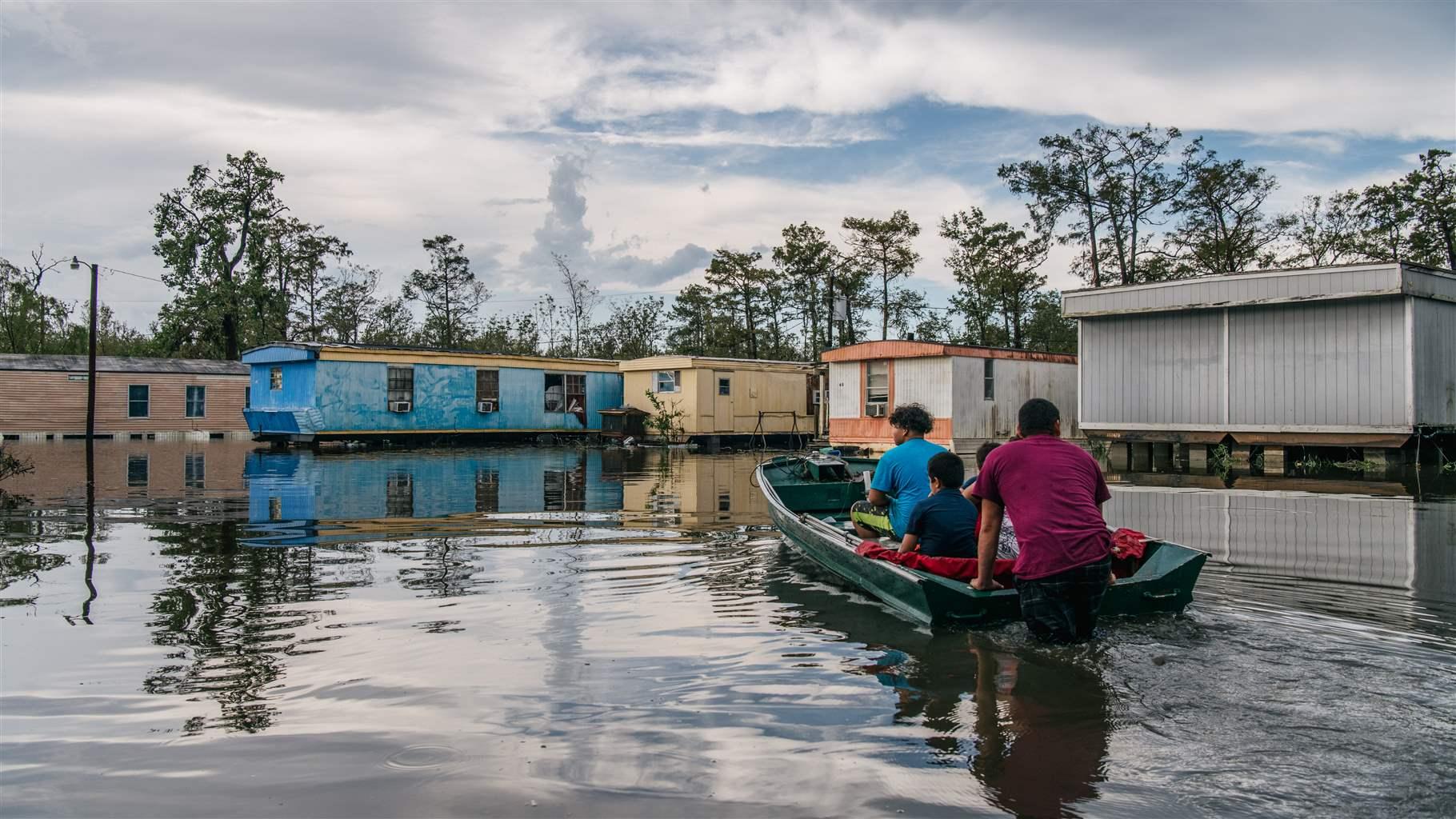Bill Would Help Set National Flood Preparedness and Adaptation Strategy
New White House resilience position would lead effort to coordinate federal, state, and local work

With the frequency, intensity, and cost of climate-related disasters projected to rise over the next several decades, governments at all levels in the U.S. must act now to reduce the impacts of those events, particularly floods. Although some federal agencies, states, and localities have formalized natural disaster and climate adaptation and resilience plans, the country lacks a cohesive approach to resilience across all levels of government. Now, a bipartisan bill on Capitol Hill could help address this issue by creating a national strategy to coordinate federal initiatives and enhance support for local and state governments seeking to reduce risks from disasters, such as flooding.
The bipartisan National Climate Adaptation and Resilience Strategy Act, introduced yesterday by Senators Chris Coons (D-Delaware) and Lisa Murkowski (R-Alaska) and Representatives Scott Peters (D-CA) and Maria Elvira Salazar (R-FL) in the Senate and House of Representatives, respectively, would create a chief resilience officer position in the Executive Office of the President to improve the effectiveness of efforts to address climate vulnerabilities. This would be achieved in part through establishment and oversight of interagency working groups and a council of nonfederal partners focused on taking stock of existing federal operations; identification of challenges and barriers to building climate resilience; and design of a national strategy and implementation plan to address those shortcomings. The Pew Charitable Trusts applauds this vision and supports passage of the bill.
Currently, natural disaster recovery and preparedness plans, programs, and funds are spread across at least 17 federal agencies, including the Department of Transportation, Small Business Administration, Federal Emergency Management Agency, and Department of Housing and Urban Development. This siloed approach to resilience often creates inefficiencies within the federal government and challenges for state and local partners. As of June 2021, more than 15 states—coastal and inland, with governments across the political spectrum—had initiated comprehensive resilience planning processes that emphasize community-scale solutions, updated development codes, and use of nature-based solutions to mitigate flooding. Given this uptick in adaptation activity at the state level, implementing a national disaster resilience strategy is critical for the efficient use of state and federal resources.
State and local governments, as well as nongovernment entities, should be supported by an adaptation strategy that guides investments, leads with science, puts nature to work, and addresses historical inequities, such as how climate impacts disproportionately affect low-income neighborhoods. The comprehensive approach proposed in the legislation could help increase communities’ capacity to prepare for disasters and encourage greater collaboration among all levels of government and key resilience partners such as nongovernmental organizations, academic institutions, and the private sector.
The National Climate Adaptation and Resilience Strategy Act would complement the Biden administration’s ambitious agenda to address climate change. If signed into law, the bill would move our country toward better use of taxpayer dollars through thoughtful climate change preparedness, response, and adaptation, and could jump-start more improvements in how the U.S.—and states and localities—weathers an uncertain future.
Laura Lightbody directs The Pew Charitable Trusts’ flood-prepared communities project.







